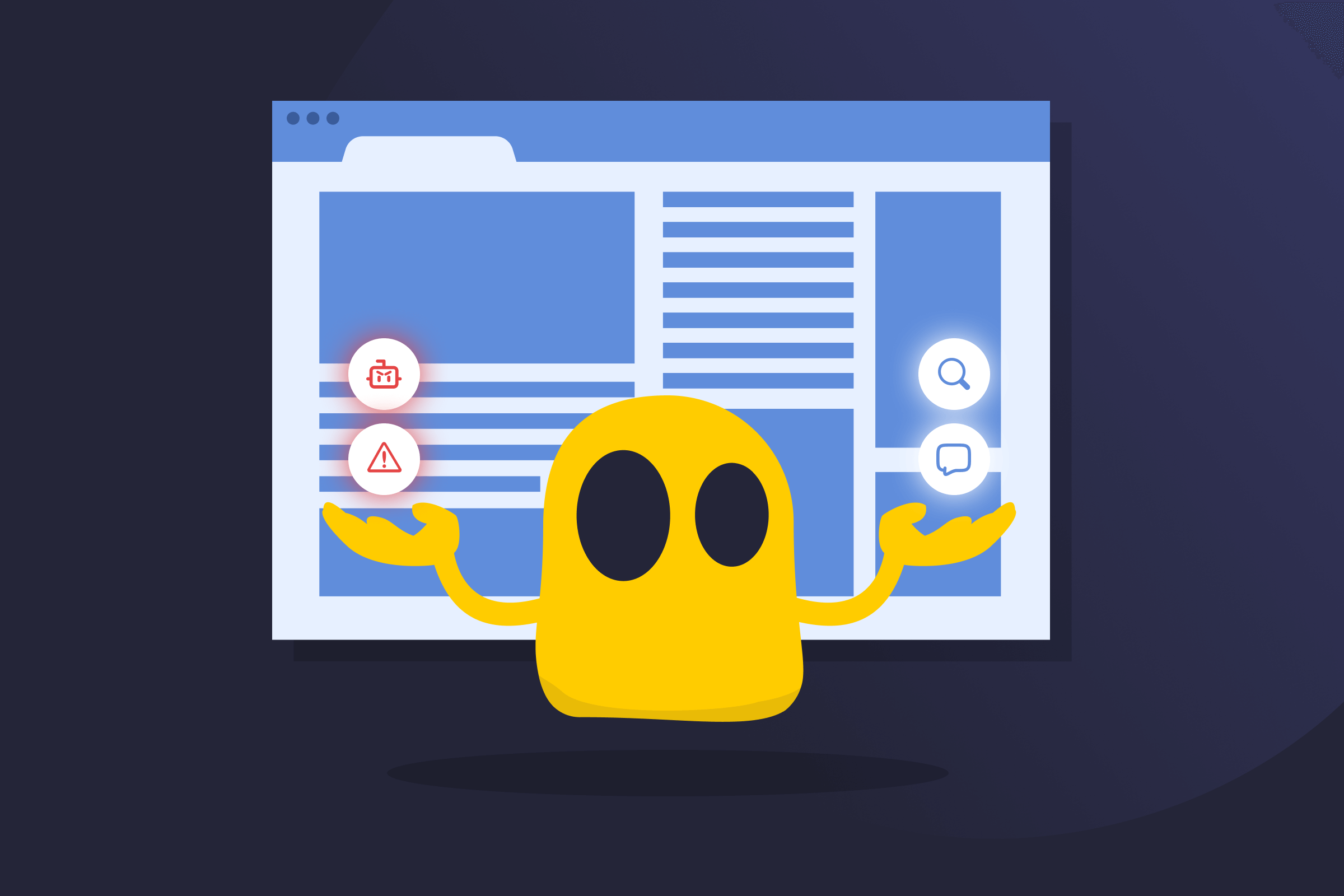Internet Bot

Internet Bot Definition
An internet bot, web robot, or simply just bot is a piece of software that runs automatically and performs tasks online. It can do simple things like scanning websites, sending messages, or gathering information, often without someone controlling it in real time. This ability to work quickly and repeatedly makes bots useful for many everyday tasks, but the same behavior can also be harmful.
How Internet Bots Work
Internet bots follow a set of rules or scripts to interact with websites, apps, or APIs. Some run on schedules, while others react to triggers like form submissions, keywords, or page changes. They’re common in search engines, customer support, and site monitoring, but the same automation can also be used to send spam, scrape content, or probe websites for weaknesses.
Types of Internet Bots
- Search engine bots: Crawl and index web pages so search engines can find and update content in search results.
- Chatbots: Answer questions or reply to messages on websites, apps, or support pages.
- Monitoring bots: Watch websites for problems and flag issues like downtime or broken pages.
- Scraping bots: Extract information from websites, such as prices or text, sometimes against site rules or without permission.
- Spam bots: Flood inboxes, forms, or comment sections with unwanted messages.
- Malware bots: Take control of devices infected with malicious software and use them for spam, DDoS attacks, or credential abuse.
Benefits of Internet Bots
- Save time: Improve efficiency by managing routine tasks without constant human input.
- Stay always on: Run nonstop without breaks, schedules, or fatigue.
- Handle scale easily: Process large volumes of simple work much faster than people.
- Keep services running: Help keep websites and online services updated and responsive.
- Responds quickly: Provide fast replies to basic issues or requests without waiting for a person.
Limitations of Internet Bots
- Limited understanding: Can miss context and struggle with nuance compared to humans.
- Rigid behavior: Follow rules blindly, even when conditions change.
- Potential abuse: Cause harm when used for spam, scams, or other malicious activity.
- Noise creation: Add traffic or messages that make it harder to identify real users.
- Fragility: Break easily when poorly designed or given unclear instructions.
Read More
FAQ
A bot is a program that runs tasks automatically. Some bots help websites function smoothly, such as indexing pages or answering basic questions. Malware is software created to cause damage, like stealing data or disrupting systems. While some bots are benign, others may be used to spread infections, spy on activity, or take control of devices without permission, making them malicious.
A botnet is a group of devices that cybercriminals (and sometimes state actors) control using bots. These devices often belong to regular users who don’t know their computers or smart devices have been compromised. Attackers use botnets to send spam, overload websites, or carry out other large-scale attacks.
Websites generally allow bots that support their services, such as search indexing or performance monitoring. They block bots that send spam, scrape content without permission, or overload servers. The goal is to keep helpful automation while stopping any activity that can harm users or performance.
Yes, some bots are designed to act like real users. They can click links, fill out forms, or post messages. This makes them harder to spot, especially when they move slowly and follow normal browsing patterns.
Not always. Internet bots need a connection when they interact with websites or online services. Some bots can still run locally (for example, preparing tasks or monitoring local changes), and they only need to go online when they have to send or fetch data.

 45-Day Money-Back Guarantee
45-Day Money-Back Guarantee